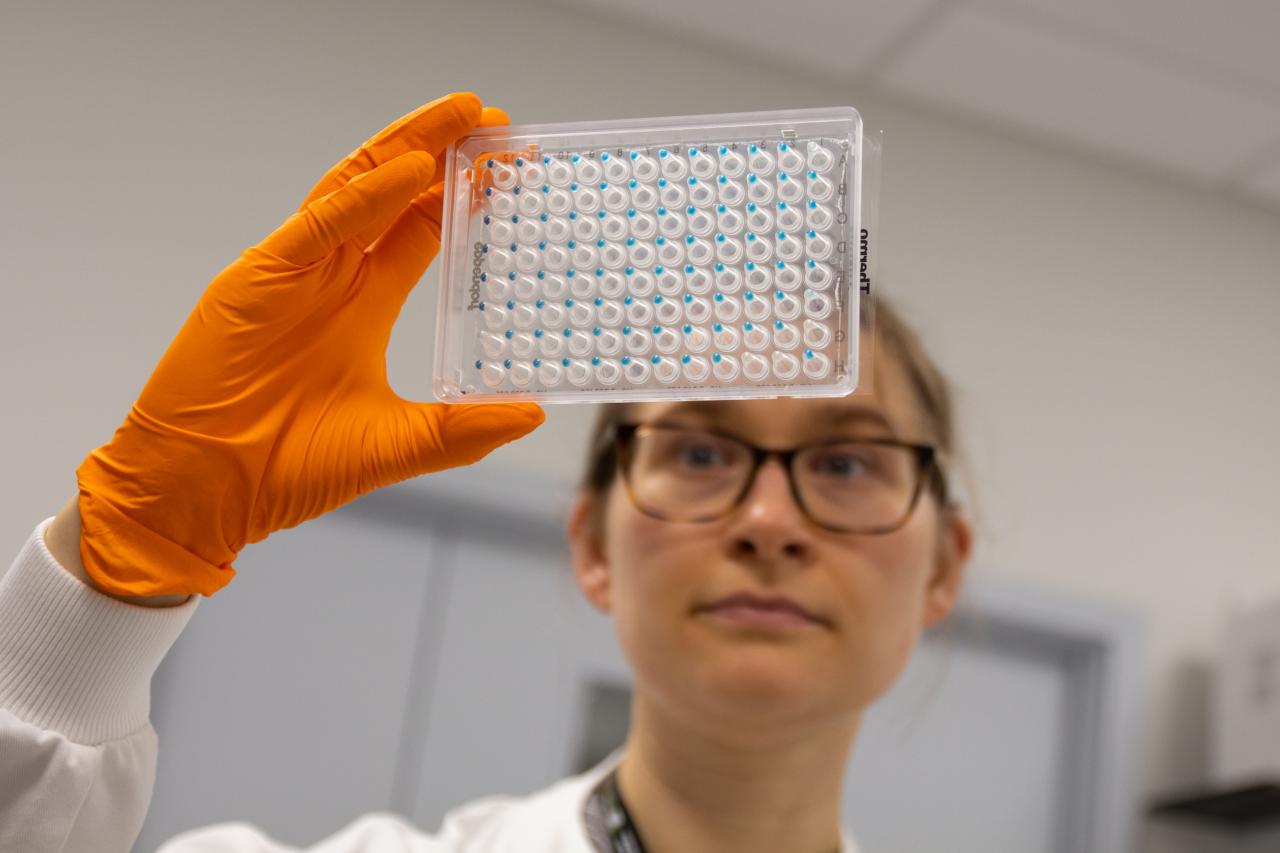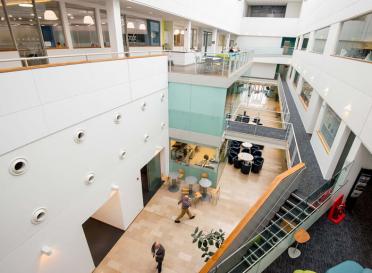
Life at Earlham Institute
We believe that our people are our greatest asset, and we want you to have the freedom to achieve your very best work here.
Clotting at the site of an injury is a lifesaving mechanism mediated by platelets. It is estimated that a healthy individual produces 1 million platelets every second for this purpose. However, in older people, cancer patients, and those suffering from autoimmune diseases, there can be a life-threatening shortage of platelets. Understanding why could help us develop new treatments.
Platelets originate from megakaryocytes, one of the largest and most mysterious mammalian cells. These giant cells can have up to 32 copies of the genome and fragment their cytoplasm to give rise to platelets. However, it is unknown if all megakaryocytes contribute equally or if there is a correlation between genome ploidy and platelet output.
Using RNA lineage tracing, we have recently shown that not all hematopoietic stem cells (the progenitors to megakaryocytes) produce platelets. Although the main function of megakaryocytes is to produce platelets, growing evidence suggests they have a role in immune defence. This distinct function is assumed to be executed by a subset of megakaryocytes.

We are offering a collaborative multi-disciplinary PhD project between the Wojtowicz, Macaulay and Haerty groups. The aim of the project is to apply single-cell RNA lineage tracing, combined with long- and short-read sequencing, to determine the origins - and molecular and functional consequences - of increased ploidy in megakaryocytes.
The student will work in a rapidly developing field and gain unique expertise in experimental single-cell functional and molecular biology, technology development, and computational biology.
The project will be conducted at the Earlham Institute, a BBSRC-supported, world-leading research centre for single cell technology development, genomics, and bioinformatics. The student will have access to training, peer support, and career development opportunities.
Related Reading:
Eligibility and Funding:

The group, led by Dr Edyta Wojtowicz, aims to understand how single cells respond to environmental stress (e.g. infection or ageing). Stem cells are long living cells able to differentiate into mature cell types to maintain tissue homeostasis. Their pasticity is key for the survival of organisms and is maintained by fine-tuning gene expression and cues from the microenvironment. We study systemic changes at the single-cell level in the blood-bone marrow-liver-gut axis using a multidiscplinary approach, including microfluidics, lineage tracing and in vivo models of dietary intervention.

We believe that our people are our greatest asset, and we want you to have the freedom to achieve your very best work here.

Norwich is a city of culture, with its rich history of art and writing, as well as a city of science - hosting some of the leading centres for life science research in the world.

The behaviours and communication skills we expect from candidates.